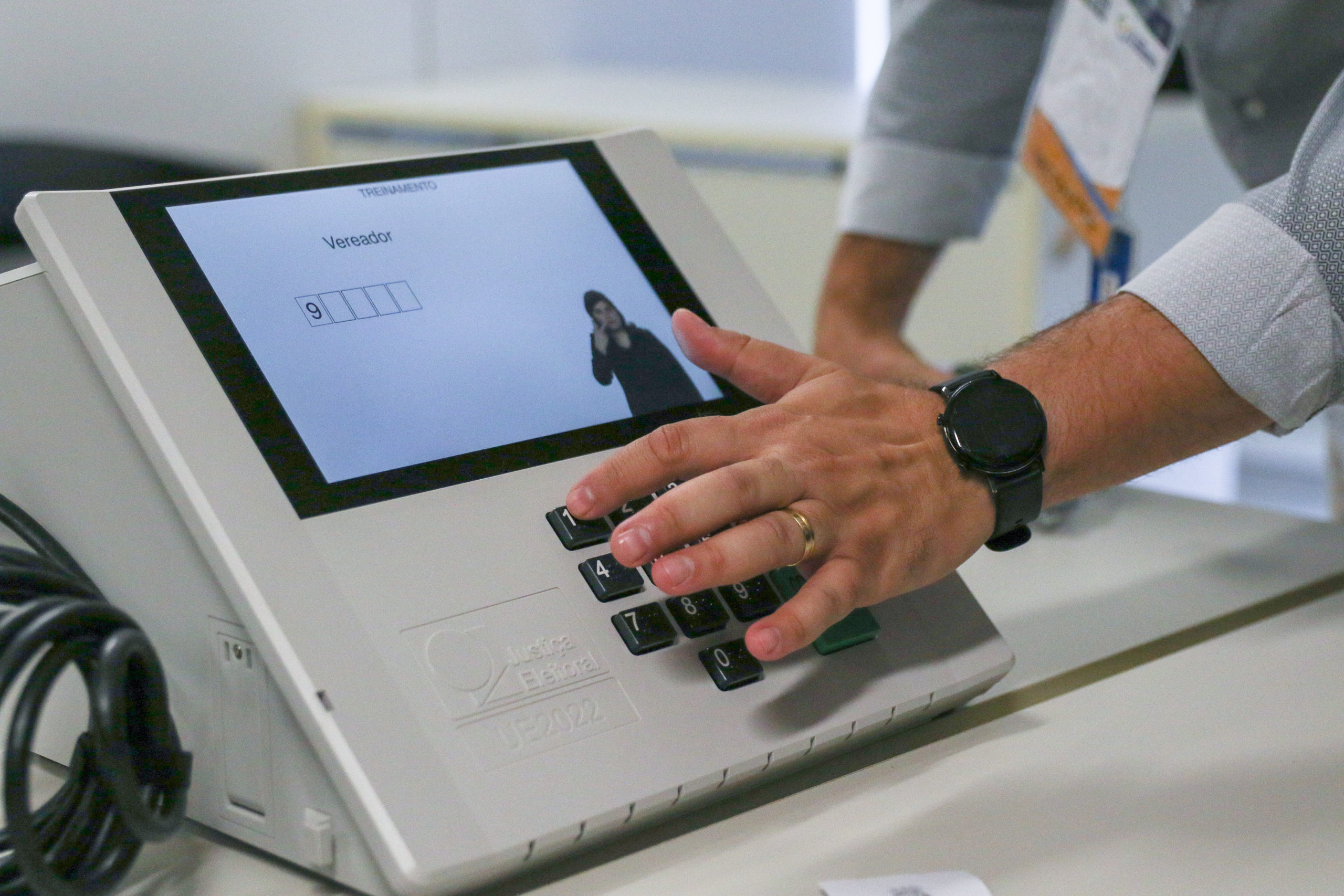Find out tools you can use to fight misinformation during the election
With the municipal elections approaching, it is crucial for the population to be trained to identify and fight misinformation; check out helpful tools below
 TSE realiza a 7ª edição do Teste Público de Segurança da Urna 2023. Foto: José Cruz/Agência Brasil
TSE realiza a 7ª edição do Teste Público de Segurança da Urna 2023. Foto: José Cruz/Agência Brasil
Misinformation is a growing threat to the integrity of electoral processes worldwide. With the increase of online-based interactions, even though access to information is becoming easier, the speed at which fake news spread imposes challenges to both voters and candidates to public office, in addition to democratic institutions.
The erosion of trust in the electoral process and its institutions, social polarization, voter manipulation, and political violence are all consequences of the accelerated circulation of false news in social media. In addition to compromising public trust, misinformation directly affects the most vulnerable groups — women, people of African descent, and the LGBTI+ community —, which are often targeted by coordinated smear campaigns and lies.
Nina Santos, the director of Aláfia Lab, in an interview to Conectas, highlights that these groups are disproportionately affected, which further limits their opportunities of social and political participation. “Misinformation affects the very possibility or ability of people, particularly women and black people, to occupy social spaces, positions of power, or even running elections”, she states.
Read more
Santos also emphasizes the lack of regulation of digital platforms as one of the major challenges in the fight against misinformation. “Thought the Superior Electoral Court (TSE) has made significant strides, the absence of a more robust regulation of digital platforms is still a problem. The scenario for 2024 is concerning, particularly with the growing use of artificial intelligence”, she says, highlighting the need for creative and more effective regulatory solutions.
With the approaching municipal elections, it is crucial to train the population to identify and fight misinformation. The list below includes tools that can help.
How can I report misinformation?
1. Via mobile
Download the Pardal app (available at Google Play and the App Store), a tool offered by the TSE for users to report electoral irregularities. For misinformation cases, users will be referred to the Electoral Misinformation Alert System (SIADE, acronym in Portuguese).
2. Via website
SIADE is a platform where users can report false information that hinders the voting process. Alerts are verified and, if necessary, digital platforms and competent authorities are notified to take the appropriate measures.
3. Via phone
The Superior Electoral Court (TSE) has provided the population with SOS Voto, a complaint hotline at the number 1491. Through this hotline, the TSE’s Integrated Center for the Fight against Misinformation checks reports and, when necessary, forwards them to the Federal Police or the Electoral Prosecution Office.
What can be reported?
- Attacks against the elections: report content that questions the integrity of the electoral process or that fosters hatred and political violence.
- Negative content boosts: ads and negative campaigns in social media are irregular and should be reported.
- Deepfakes and AI: false video and audio, produced with technologies such as deepfake (hyper-realistic fake audio and video), are forbidden, and candidates should be transparent regarding the use of AI in their campaigns.
- Lack of transparency by parties: parties have several obligations to meet in order to run elections. For instance, checking whether gender quotas, which assure 30% feminine candidates, are being respected. Transparency and diversity are crucial for a healthy democracy.
- Advertisement in religious temples: electoral advertisements in places of worship are forbidden. Report religious leaders that promote candidates in these spaces.
——————————————————————–
Conectas launches a campaign against misinformation in municipal elections
In a key moment for the future of municipalities, Conectas is launching a campaign to help voters identify false content and understand the role of City Hall and the Municipal Council in the promotion of human rights.






